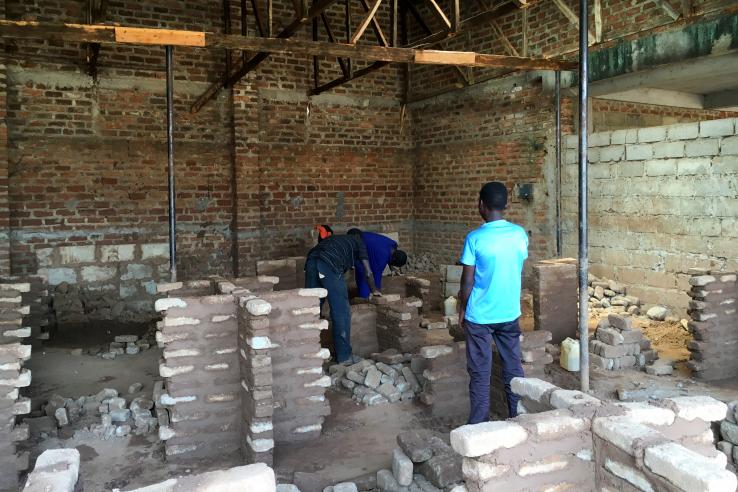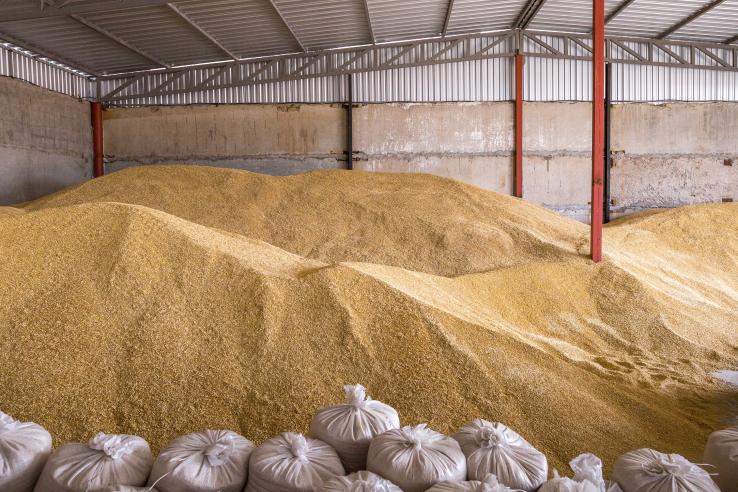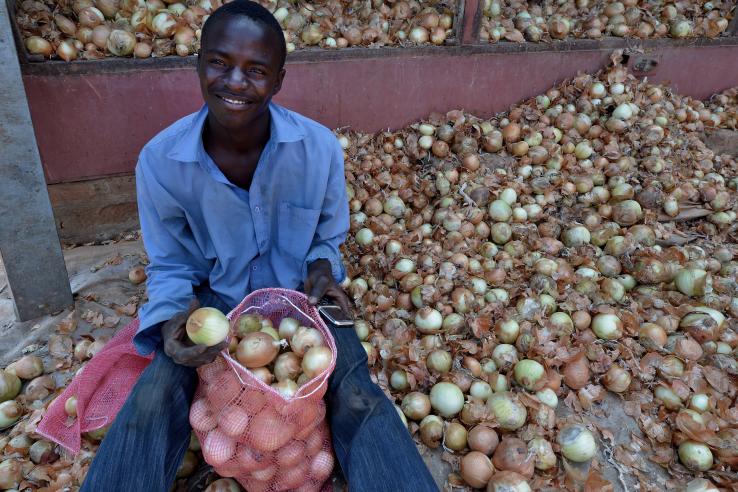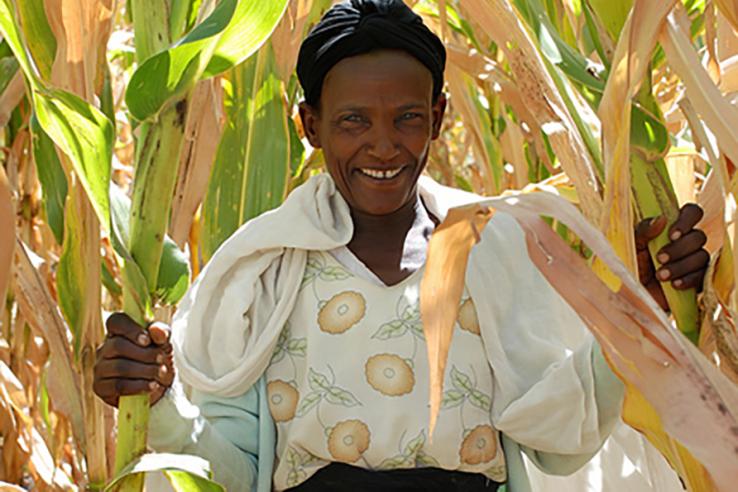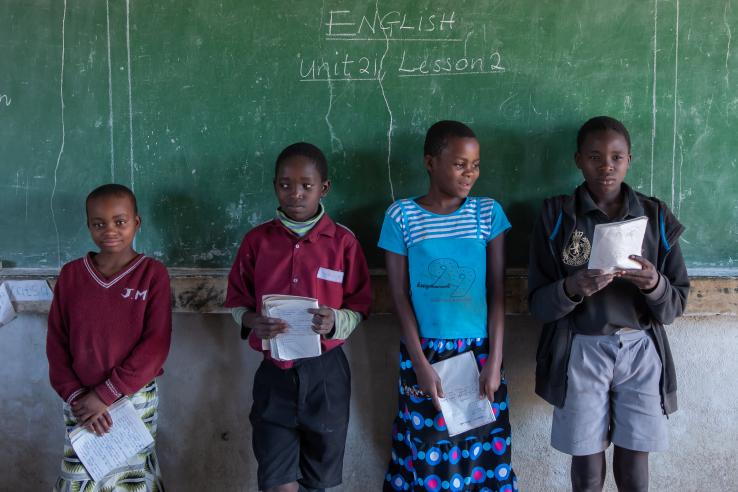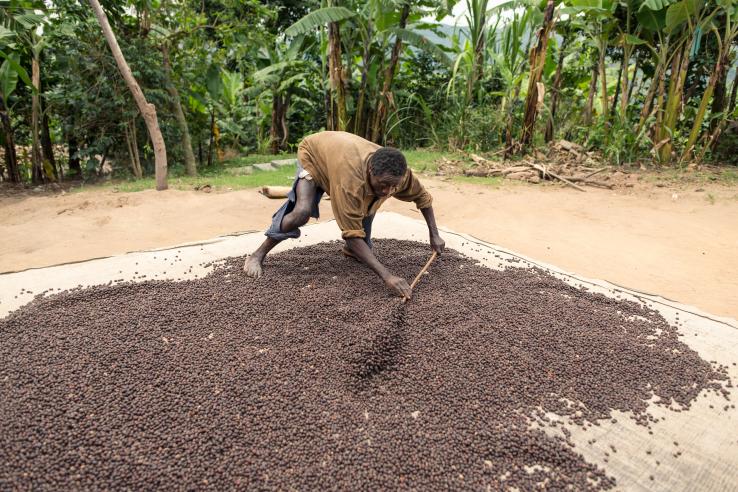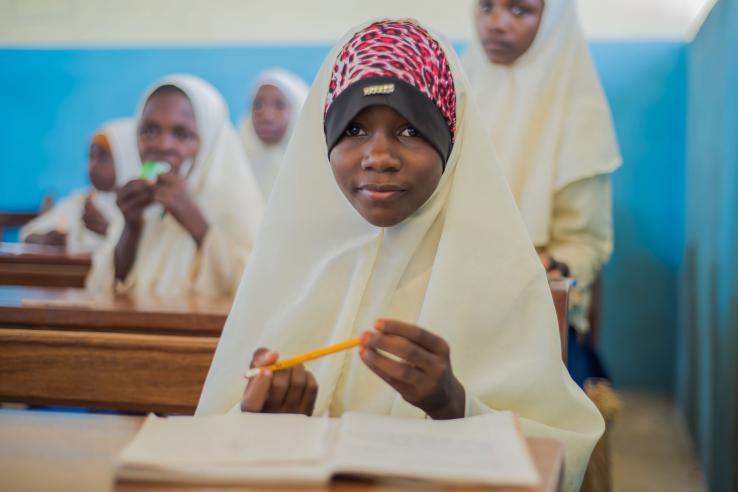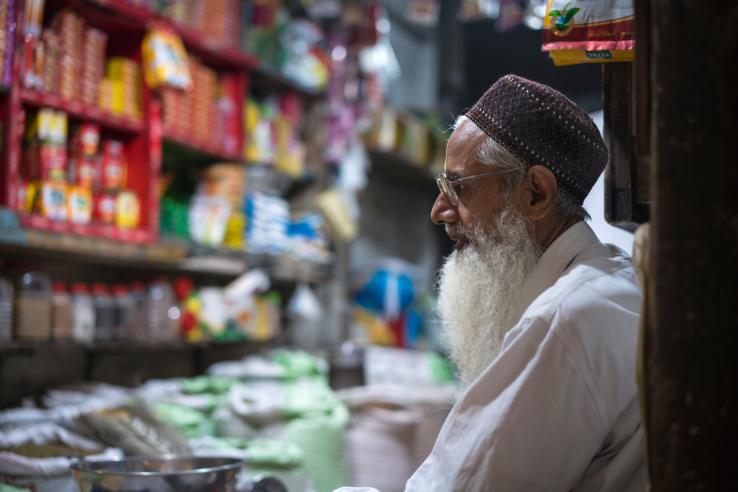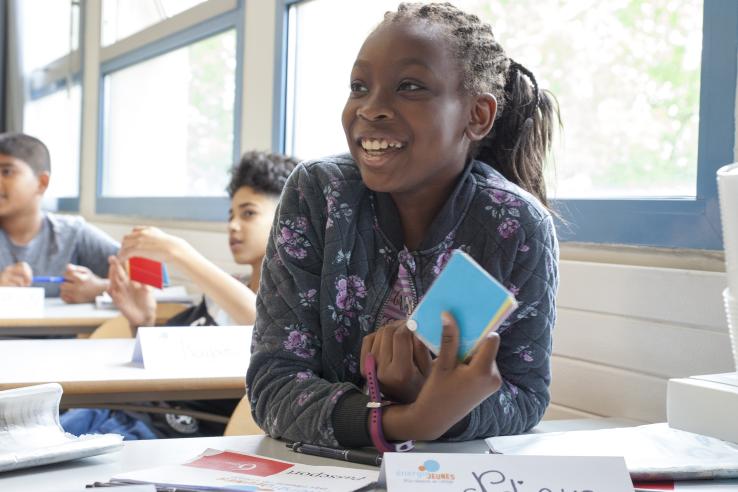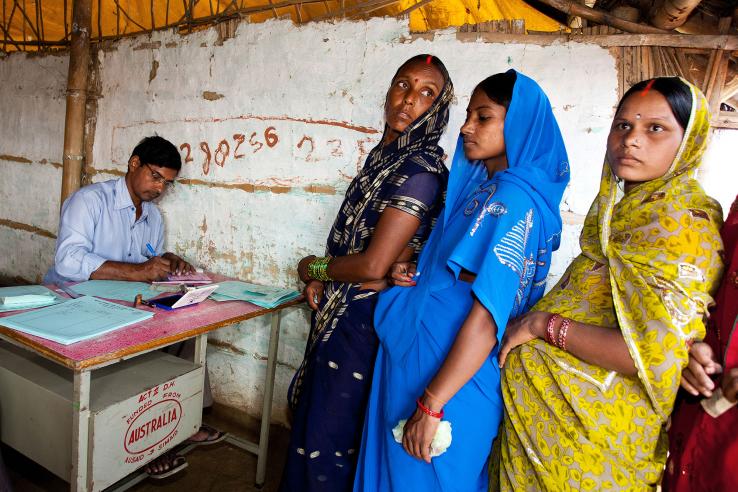Displaying 106 - 120 of 1291
Evaluation
Researchers evaluated the impact of offering either subsidized vocational training to unemployed youth or subsidized apprenticeships for firms on youth employment and earning outcomes in urban Uganda. Both forms of subsidized training led to greater skill accumulation, higher employment rates, and higher earnings for workers; however, the gains were larger for vocational trainees and were sustained over time.
Evaluation
Researchers worked with existing savings clubs in Kenya to study the effect of two interventions on savings: the provision of communal crop storage devices and the provision of savings accounts earmarked for farm purchases. Researchers find that the products were popular: about 56% of farmers took up the products. Respondents in the maize storage intervention were 23 percentage points more likely to store maize (on a base of 69%), 37 percentage points more likely to sell maize (on a base of 36%) and (conditional on selling) sold later and at higher prices.
Evaluation
In Zambia, researchers examined the impact of access to seasonal credit on farming households’ consumption, labor allocation, and agricultural output. The results suggest that access to food and cash loans during the lean season increased agricultural output and consumption, decreased off-farm labor, and increased local wages.
Evaluation
In Ethiopia, researchers conducted a randomized evaluation to assess the impact of behavioral nudges on household behaviors, like grain and flour storage, cooking, and consumption, as well as on childhood nutrition. They found that households improved grain storage and cooking practices, and children in those households ate more of the improved maize.
Evaluation
In Bangladesh, researchers evaluated how temporary exposure to a community driven development program altered citizens’ preferences for inclusive, participatory approaches to decision-making. In this context, exposure to participatory decision-making increased the value that communities assigned to such participatory processes but did not translate into increased adoption of inclusive institutions.
Evaluation
Increasing levels of migration to the European Union have created significant challenges for governments to ensure migrants fully integrate and thrive in their host societies, but there is little rigorous evidence that evaluates current programs that promote social inclusion. Researchers are conducting a randomized evaluation to test the impact of a peer matching program that aims to increase information and improve social capital on migrants’ social attitudes, Swedish language skills, employment, education levels, and general feeling of belonging in Sweden.
Evaluation
Researchers evaluated whether randomly providing financial support for secondary education could improve economic decision-making in addition to educational outcomes for secondary school students in Malawi. Results show that the intervention improved educational outcomes and economic decision-making, especially among 9th grade students.
Evaluation
Researchers partnered with the Sacramento Municipal Utility District in California to evaluate the effects of a variety of enrollment schemes in time-varying pricing plans on electricity consumption. Results show that households which were enrolled in time-varying pricing plans by default tended to stick to their default enrollment with only few households choosing to opt-out, suggesting the presence of strong default effects, meaning that people lean toward the course of action requiring the least effort by sticking with a pre-set default option
Evaluation
Researchers are conducting a randomized evaluation to test whether providing traders “bonuses” for high-quality coffee affects the prices traders offer farmers for their coffee and whether this, in turn, affects farmers’ incentives to invest in the quality of their production.
Evaluation
Researchers, in partnership with BRAC, are conducting a randomized evaluation with both male and female adolescents in Tanzania to identify the differential impacts of demand side and supply side interventions and to better understand the role males play in affecting sexual and reproductive health outcomes.
Evaluation
Researchers partnered with several agencies of the Government of Punjab, Pakistan, to evaluate the impact of giving procurement officers more autonomy, compared to financial rewards, on public procurement performance. Shifting authority away from supervisors and towards procurement officers improved performance, particularly when supervisors were more inefficient or corrupt. In contrast, financial rewards for officers did not improve performance when their supervisors were inefficient or corrupt.
Evaluation
Researchers evaluated the impact of a series of class discussions in middle school that emphasized the importance of these skills on student behavior and test scores. The program improved participating students’ academic achievement, particularly among girls, well-behaved students, and non-recipients of financial aid.
Evaluation
Workers with criminal records face substantially lower chances of securing employment compared to similar workers without such records. Researchers evaluated the effectiveness of different approaches, including wage subsidies, crime and safety insurance, past performance reviews, criminal record history, and objective information on worker performance, on managers’ willingness to hire people with criminal records. The study found that policies which directly addressed hiring managers’ concerns about productivity and risk effectively increased demand for workers with criminal records.
Evaluation
Informal healthcare workers with little to no training provide more than 70 percent of all primary care in rural India. In this study, researchers evaluated the impact of a nine-month training...
